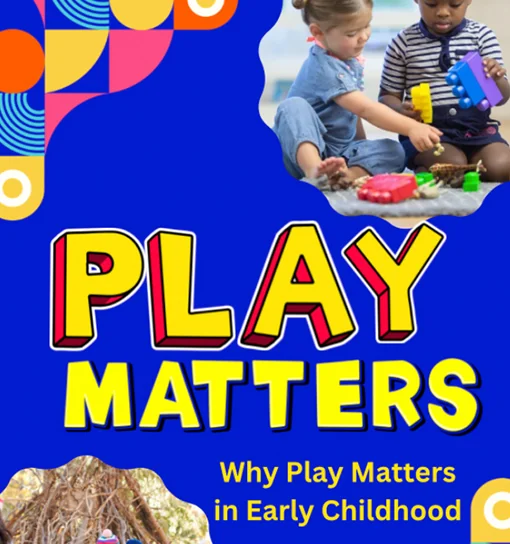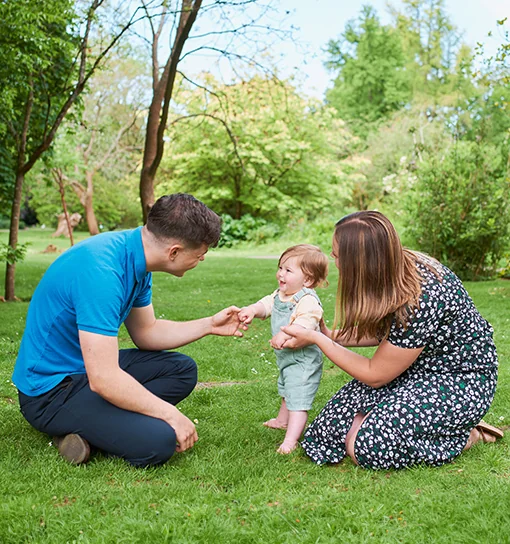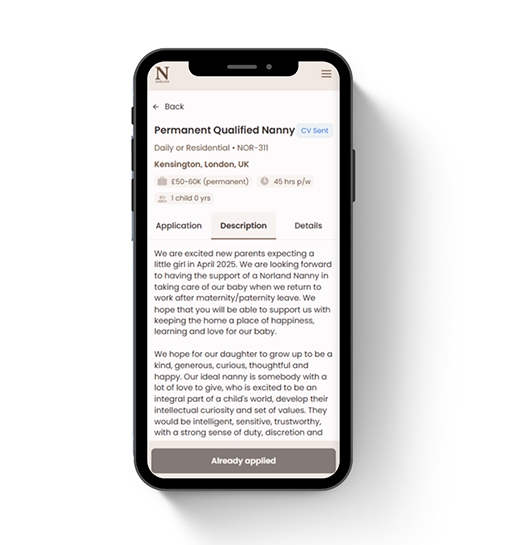Principal Lecturer Tamsin Grimmer discusses Play Matters - a new free guide on the importance of play in early childhood
8 April 2025

Norland Principal Lecturer Tamsin Grimmer discusses her involvement in a groundbreaking new guide Play Matters which explores the importance of play in childhood development.
Tamsin, who leads modules on self-regulation on the BA (Hons) Early Childhood Education and Care degree, has research interests in the importance of love and nurture in early childhood. In this blog, Tamsin discusses the guide, her research on love and nurture, and key takeaways from this vital document.
“When you hear the word play, I wonder what comes to mind? For me it is children, noise, smiles, laughter and joy! Children love playing— play matters to them, and play should matter to us too.
“Unfortunately, adults do not always prioritise or take children’s play seriously. So, when I was given the opportunity to get involved with writing a guide called Play Matters advocating for the role of play in children’s lives, I jumped at the chance.
“Featuring a foreword by Michael Rosen, Play Matters is a guide which champions the power of play in early childhood and challenges traditional perceptions of play. It was edited by Dr Aaron Bradbury, Principal Lecturer for Early Childhood Studies at Nottingham Trent University and Norland’s External Examiner, and was written collaboratively by over 60 early childhood professionals and experts in their field. It has chapters which link play to the themes such as: joy, playful learning from birth, the playful brain, early years curriculum, love and nurture, and challenging play.

“The chapters were written by groups of experts, practitioners, academics and professionals in a truly collaborative manner, and each chapter links theory to practice. In fact, although Play Matters draws upon research and literature, the strength in the guide is how practical and relatable it is to those who work daily with children. The guide offers both support, and challenges ideas, when considering the role of play in our practice as early years practitioners. It includes case studies, reflection points and key questions that enable the reader to reflect upon their own practice.
“As an advocate of a loving, nurturing approach and having researched this area, I was invited to lead and edit the chapter on ‘Play, Love and Nurture’. This chapter outlines how play thrives when children feel safe and secure, and when adults put their relationship with the children first, are attuned to them, and are knowledgeable and nurturing — I would say when they have adopted a loving pedagogy. The chapter explores how loving and nurturing play is child–centred, based on a foundation of secure relationships, can include loving and nurturing touch and fosters a sense of belonging.
“I also co-wrote and edited the chapter on ‘Challenging Play’, exploring play that can be undervalued or even misinterpreted as misbehaviour: risky play, weapon play, rough and tumble play and schematic play. I have previously written about these themes in some of my books, such as, Observing and Developing Schematic Behaviour, Calling all Superheroes and Supporting Behaviour and Emotions in the Early Years.

“At Norland, the majority of the themes covered in Play Matters are explored within our BA Hons Early Childhood Education and Care degree. For example, Norland Principal Dr Janet Rose, was part of the group which wrote the chapter ‘The Playful Brain’. The chapter draws on Dr Rose’s research into attachment aware schools, neuroscience, and Emotion Coaching. The content of this chapter links into our first, second, and third-year modules which explore self-regulation.
“The guide ends by looking to the future and with a plea for educators, parents, policymakers, and community leaders to advocate for play, to:
1. Prioritise Play in Policy and Practice: Ensure that play-based learning is recognised in curricula and educational frameworks, reinforcing its essential role in early childhood development.
2. Create Play Rich Environments: Design early childhood settings, schools, and community spaces that celebrate and facilitate high quality, child led play.
3. Champion Play for All Children: Advocate for inclusive play opportunities, ensuring that children with diverse needs and backgrounds have equitable access to play.
4. Recognise Play as a Right: Uphold the UN Convention on the Rights of the Child, which identifies play as a fundamental right, and challenge policies and practices that restrict play.
5. Empower Parents and Caregivers: Provide families with knowledge and resources to support play at home, making it a natural and joyful part of daily life.
“From my perspective, the key takeaways from this document are:
- Play is vital to children’s development
- Play is learning
- Play is powerful
- Play matters”

Read our latest news and blogs







